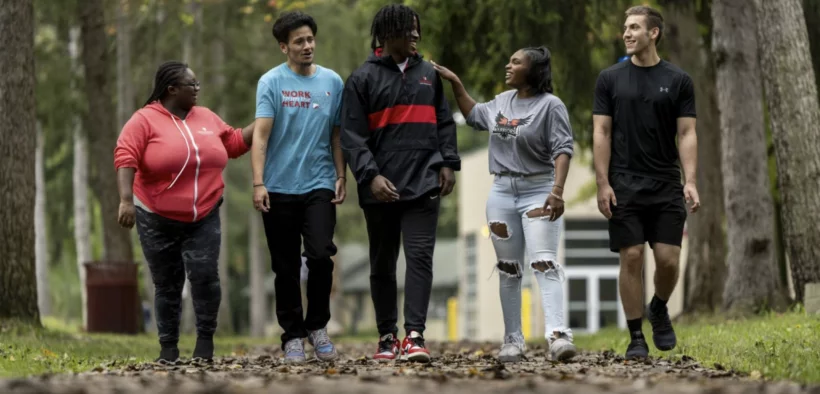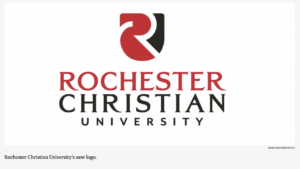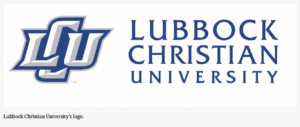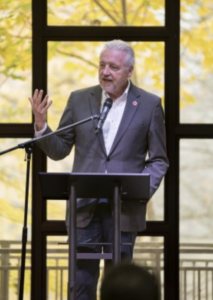What’s in a Name?
Two Christian universities embroiled in name, trademark litigation


Photo courtesy of Rochester Christian University
By any other name would smell as sweet;
So Romeo would, were he not Romeo call’d,
Retain that dear perfection which he owes
Without that title….”
- • •
Sweet thoughts, though the concept ended in suicidal tragedy for Shakespeare’s Romeo and Juliet.
Real-life name-change dramas have landed two Christian universities — Lubbock Christian University in Texas and newly renamed Rochester Christian University in Michigan — in two distant federal courtrooms rather than a garden in Verona. Both schools are associated with Churches of Christ.
Rochester Christian University had officially changed its name to Rochester University six years ago, the fourth such change in its 65-year history but the first to result in a legal challenge.
The most recent change — to Rochester Christian University — ended months of litigation brought by The University of Rochester in New York state.

The Michigan school, founded in 1959 as North Central Christian College, became Michigan Christian Junior College in 1961, dropped the “Junior” in 1978, then became Rochester College in 1997. It changed to Rochester University in 2018.
Lubbock Christian University also has found itself in court defending the use of its LCU moniker against Louisiana Christian University, which adopted that name only two and a half years ago after more than a century as Louisiana College.
Lubbock Christian, which opened as a junior college in 1957 using the name Lubbock Christian College, became a four-year college in 1972 and then a university in 1987. The school started using “LCU” at that time and first registered its stylized interlocking letters as a trademark in 2007, applying for renewal of the mark in 2020.
The Louisiana school, on the other hand, was founded in 1906 as a Baptist liberal arts college. According to the lawsuit it filed in July 2023, its legal name remains Louisiana College, but its “trade name, ‘Louisiana Christian University,’ has been registered with the Louisiana Secretary of State since November 1, 2021.”
Access to MinistryWatch content is free. However, we hope you will support our work with your prayers and financial gifts. To make a donation, click here.
Litigation between the Texas and Louisiana universities commenced in July 2023 after several months of letters and phone conversations between the institutions’ chief executives, initiated in December 2022 by Scott McDowell, Lubbock Christian president, to then-president Mark Brewer of Louisiana Christian, according to the complaint.
Warren McNeill, Lubbock Christian’s vice president for marketing and public relations, told The Christian Chronicle, “Our president came from Lipscomb and was there when they were asked to cease and desist using LU by Liberty.”
Treating ‘folks in a kind way’
In 2013, Lipscomb representatives said they chose to avoid the “cost and distraction” of federal litigation and thus discontinued all use of the LU logo in response to complaints from Liberty University, the Virginia school founded by the late evangelical minister Jerry Falwell. Lipscomb had used the LU mark for two years after an initial trademark search came back clear.
McNeill said McDowell “remembers what that felt like and wanted to treat the Louisiana folks in a kind way.”

Warren McNeill is Lubbock Christian University’s vice president for marketing and public relations / Photo courtesy of Lubbock Christian University.
Similarly, from 1990 to 1996, Oklahoma Christian College briefly changed its name to Oklahoma Christian University of Science and Arts rather than mimic the OCU brand of Oklahoma City University. Eventually, it truncated the name by dropping the “Science and Arts” phrasing and adopted OC as its initials mark.
If Lubbock Christian’s response was kind, it was also direct. A January 2023 letter to the Louisiana school from counsel stated, “Lubbock Christian University will again request an amicable discussion between our institution[s] on this matter. But we are prepared to defend our right to our trademark if necessary.”
Conversations between the schools’ presidents continued informally until July 7 when a telephone meeting again failed to resolve use of the trademark. A week later, Louisiana Christian filed suit in the U.S. District Court for the Western District of Louisiana, Alexandria Division, seeking to prevent Lubbock Christian from asserting a claim of trademark infringement.
McNeill described what ensued as a “race to the courthouse” with the Louisiana institution filing in the federal district court in its home state.
Meanwhile, Louisiana Christian’s Brewer retired in April, and executive vice president David Jeffreys was appointed interim president. The Louisiana Christian suit filed in July makes no mention of the presidential change but begins by referring to Brewer and then to conversations between “the two Presidents” without specifying the Louisiana leadership change.
Louisiana has argued that any confusion created by the trademarks is negated by the schools’ distance of 656 miles, different religious affiliations and athletic associations and its own student population of 90 percent Louisiana residents.
 The Louisiana school also cites differences in the appearance and application of the two marks and use of the LCU initials by other organizations, including several other universities and a large number of credit unions.
The Louisiana school also cites differences in the appearance and application of the two marks and use of the LCU initials by other organizations, including several other universities and a large number of credit unions.
Multiple motions have been filed, including a motion by Lubbock Christian to dismiss for lack of jurisdiction. As of January, the case had been transferred to a new judge and assigned to a magistrate for a report and recommendation. While the parties await a ruling, both universities continue to use their LCU logos.
‘Christ-centered identity into the future’
One month prior to the suit filed by Louisiana Christian, a suit was filed in the U.S. District Court for the Western District of New York by the University of Rochester against Rochester University. Although the trademark issues in the two cases are similar, the roles are reversed.
University of Rochester, a 173-year-old, research-based university, enrolls about 12,000 students, the majority from outside the state of New York. Its medical school and Eastman School of Music are particularly well known, and it is one of only 71 universities recognized by the Association of American Universities (AAU) as being “on the leading edge of innovation, scholarship, and solutions that contribute to scientific progress, economic development, security, and well-being.” Other members include Yale, Massachusetts Institute of Technology, Berkeley and Harvard.
The New York university’s age, status and elite programs weighed heavily in the lengthy filing that asserted, “The overwhelming similarity of these names is likely to cause confusion or mistake between the schools, or as to the affiliation or connection, or sponsorship or approval by University of Rochester as to Rochester University, when none exists, all to the detriment and harm of University of Rochester.”
The URLs for the two universities’ websites were mentioned repeatedly as particularly problematic, differing by only one character and leading to misdirection from search engines. A dozen examples showed confusion on social media and among “prospective students, parents, staff, researchers, and other interested parties.”
Shortly after it was filed, the case was automatically referred for mediation. From June through December 2023, the docket reflects numerous motions and extensions prior to a voluntary dismissal by the University of Rochester on Jan. 31 of this year. Subsequently, Rochester University announced in its Feb. 21 chapel assembly the plan to change its name to Rochester Christian University but declined to discuss the change outside that in-house announcement prior to a news release on March 8.
In addition to federal trademark infringement, the suit alleged federal unfair competition and state trademark dilution, injury to business reputation and unfair competition.
The University of Rochester asked the court to find that Rochester University must discontinue use of that name and website URL, destroy all merchandise, materials and signage with the registered marks and be ordered to pay tripled damages for profits related to its use, royalties, punitive damages and attorneys’ fees.
Brian Stogner, president of Rochester Christian, said the suit was unexpected.

Brian Stogner, president of newly renamed Rochester Christian University / Photo courtesy of Rochester Christian University
“We were five years into the change and use of it. It was a bit of a surprise,” he said. “Given the fact we don’t do much business in the state of New York, it wasn’t expected.”
That said, the New York university included in its filings detailed examples of recruiting of students and personnel, transfer credit opportunities and other activities conducted in the state by the Michigan school.
Although the name change returning “Christian” to the school’s name followed publicity about the lawsuit and its ultimate settlement, Stogner chose to focus on other motivations.
He said some consideration was given to other naming possibilities, but “primarily we thought it was the convergence of several things.”
Specifically, he said a year-long campuswide project aimed at “clarifying our identity and deepening our sense of heritage and the sense of direction we’re going and our mission” influenced the choice.
“We are carrying forward a Christ-centered identity into the future,” he said.
Stogner also said he recognized that “in many ways our identity as a Christian institution was not as well known” as the school would have liked. He believes the name change will help but acknowledged the difficulty of the process.
“It’s going to be a lengthy process to get it all done,” the president said. Change of the URL will happen early on in the process, and logos will change “a little bit, because marks were part of our conversations with University of Rochester.”
Other changes require working through various government bodies. He anticipates the entire process will take a year and a half.
CHERYL MANN BACON is a contributing editor for The Christian Chronicle, where this article was originally published.
TO OUR READERS: Do you have a story idea, or do you want to give us feedback about this or any other story? Please email us: [email protected]



